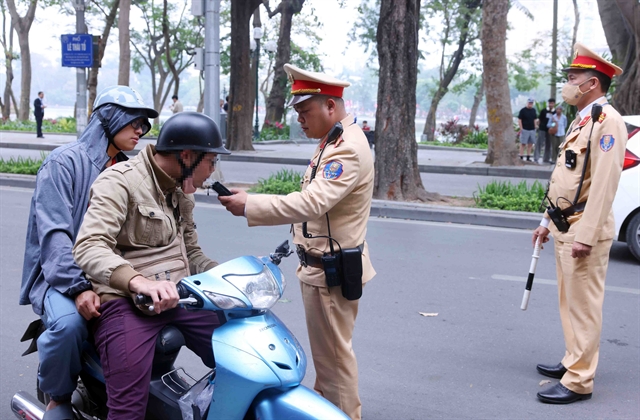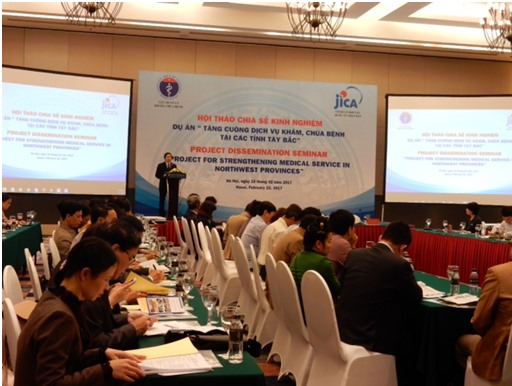 Society
Society

Provinces in the northwestern region of the country are seeing positive results from the second phase of a healthcare service project funded by Japan International Cooperation Agency (JICA), launched in 2013.
 |
| Provinces in the northwestern region of the country are seeing positive results from the second phase of a healthcare service project funded by Japan International Cooperation Agency (JICA), launched in 2013. — Photo JICA |
HÀ NỘI — Provinces in the northwestern region of the country are seeing positive results from the second phase of a healthcare service project funded by Japan International Cooperation Agency (JICA), launched in 2013.
Speaking at a conference held yesterday in Hà Nội, Dr Lương Ngọc Khuê, head of the health ministry’s Diagnosis and Disease Treatment Department, said the country’s healthcare system was facing many challenges.
Though investment in the healthcare sector has increased over the years, it has not met demand. The ratio of the number of beds compared to the number of patients is still low compared to other countries in the Southeast Asia region, he said.
In addition, there is a lack of healthcare staff in remote areas, especially in the Northwest.
The health ministry has directed agencies to increase the capacity of hospitals in remote areas and reduce overload at hospitals in bigger cities.
The project used US$3.21 million ODA from Japan and reciprocal capital from Việt Nam worth $212,000, according to JICA.
The second phase of the project (from 2013-2017) aims to strengthen medical services in Northwestern provinces.
Among its activities, the project set up a Direction Office for Healthcare Activities (DOHA) Network for provincial general hospitals, district hospitals in five target Northwestern provinces, and provincial, district hospitals and commune health stations in Hòa Bình Province.
It has also helped improve management capacity of staff at the Medical Service Administration under the Ministry of Health, and provincial departments of health and provincial general hospitals in charge of DOHA and referral activities.
Japanese experts have provided technical guidance on referral data analysis which is used to develop training for continuing medical education courses.
The project has also created a DOHA Handbook and user-friendly guidebook which provides staff and leaders with the basic proceedings of DOHA and preparation for effective DOHA management.
The handbook will be widely distributed to all cities and provinces in an effort to disseminate the lessons learned by the project.
The project has also used Referral Data Management Software as an effective tool for referral information management, in accordance with Ministry of Health’s Circular on referral at medical facilities.
The conference was attended by representatives from JICA Việt Nam Office, the Medical Service Administration and departments under the Ministry of Health, provincial departments of health, and provincial general hospitals in 27 provinces in the northern region.
Also attending were representatives from the six target provinces, including Hòa Bình, Sơn La, Điện Biên, Lai Châu, Lào Cai and Yên Bái, as well as Bạch Mai, Việt-Đức, pediatric, obstetric and national cancer hospitals in Hà Nội. — VNS




